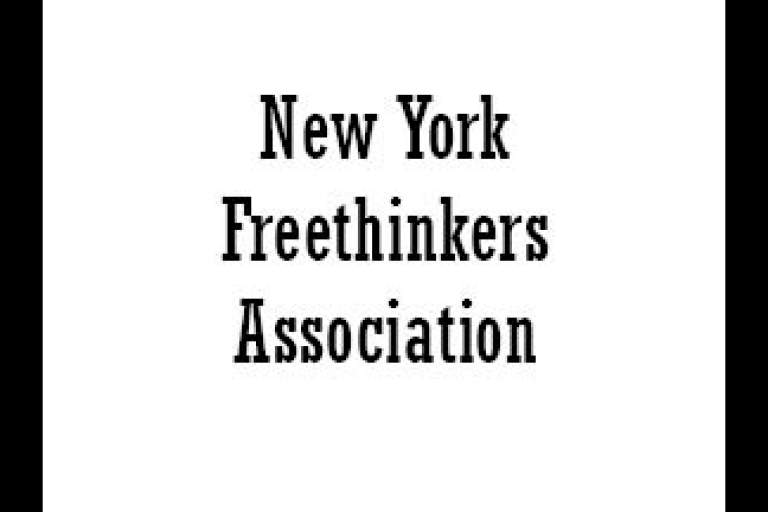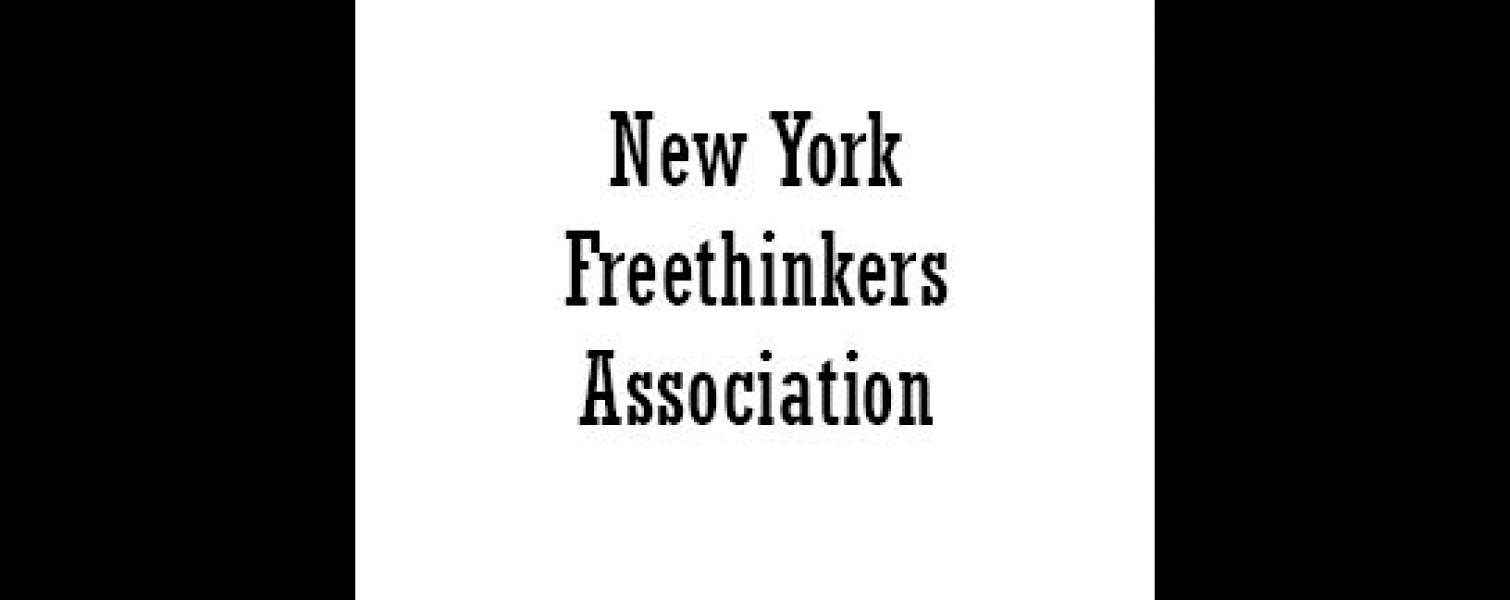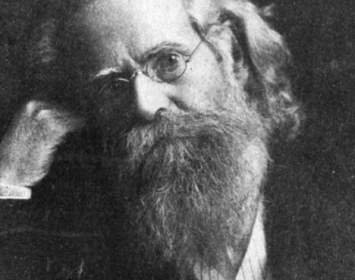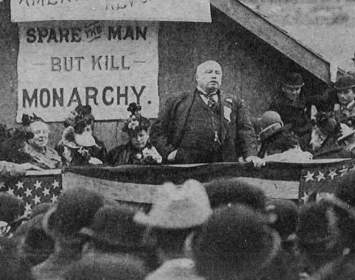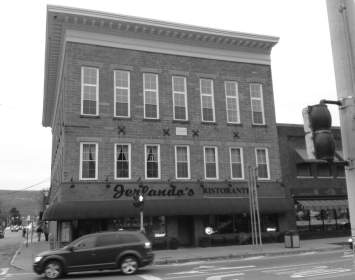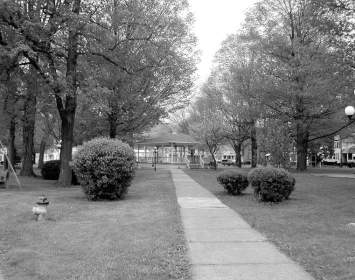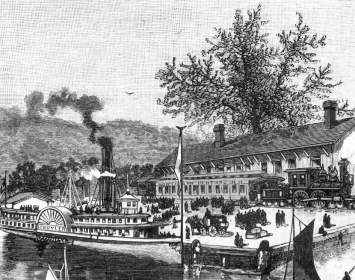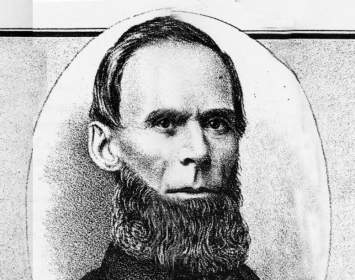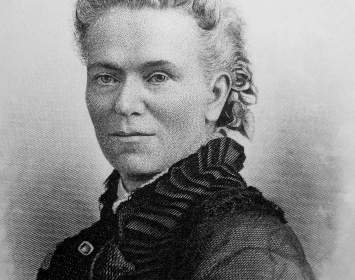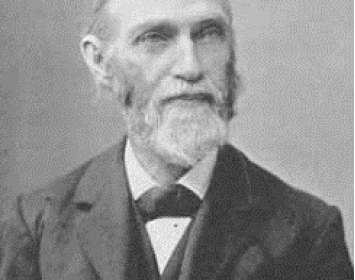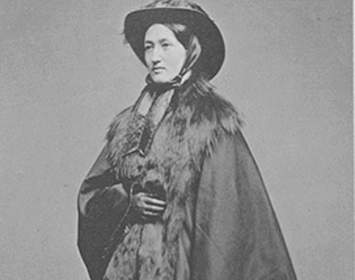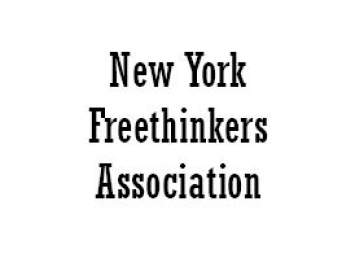The second annual convention of the New York Freethinkers’ Association (despite its name, a national conference) was held August 22–25, 1878, mostly in Watkins at a downtown park and partly in the Freer Opera House about 500 feet to the west. Outdoor speeches and events were held at the park in a rented tent and in the open air. Convention attendance at this park ranged as high as 3,000 persons. Participants’ accounts record that villagers gave a frosty reception to this group of largely big-city freethinkers.
Here, on Thursday, August 22, woman’s rights and freethought activist Matilda Joslyn Gage delivered her first freethought address. (Nineteenth-century practice was to use the singular, woman's, when referring to women as a class; later practice was to use the plural, women's.) Gage's address stressed the role of Christianity in the oppression of women: "The Christian Church is based upon the fact of woman servitude; upon the theory that woman brought sin and death into the world, and that therefore she was punished by being placed in a condition of inferiority to man—a condition of subjection, of subordination. This is the foundation to-day of the Christian Church." Her brief but penetrating remarks formed the basis of a chapter in the first volume of The History of Woman Suffrage, which she coauthored. Later it became the foundation for her masterwork, the book Woman, Church, and State.
Also on Thursday, New Jersey feminist Mary Tillotson spoke on dress reform.
Toward the end of Thursday's proceedings, regional freethought enthusiast James Madison Cosad was introduced and honored before the convention on Thursday, August 22. Cosad had organized the previous year's meeting of the Liberals and Freethinkers of Central and Western New York, held at his farmstead grove in Huron (Wolcott), New York, on August 17–19, 1877; the Liberals and Freethinkers became the New York Freethinkers' Association, sponsor of the Watkins convention.
On the mornings of Friday, August 23, and Saturday, August 24, freethinker Giles Badger Stebbins addressed the convention on Buddhism. (During this period, "freethought" encompassed a broad range of dissenters against Christianity, including atheists and also adherents of non-Christian traditions such as Shakers, Spiritualists, and some Eastern religions. All shared an opposition to Christian orthodoxy.) On Saturday, Stebbins spoke again—as did Tillotson—his audience consisting of convention-goers who had not embarked on a morning steamboat cruise.
Some 200 delegates departed from the Watkins Glen waterfront for lake sightseeing cruises on the morning of Saturday, August 24.
Also on August 24, freethought journalist D. M. Bennett was arrested, along with two other freethinkers (W. S. Bell, author of The Hand-Book of Freethought, and Josephine Tilton, both of Boston), for selling a controversial marriage-reform and birth control tract, Cupid’s Yokes by Ezra Heywood. Rochester abolitionist, woman’s rights advocate, Quaker, and Spiritualist Amy Post paid bail for Bennett and Bell. The feminist activist Elizabeth Smith Miller paid bail for Tilton—though she quickly reneged after reading the marriage reform tract, whose arguments she found repellent.
This arrest led indirectly to a celebrated obscenity case involving decency crusader Anthony Comstock, agnostic orator Robert G. Ingersoll, President Rutherford B. Hayes, and others, which ultimately established the Hicklin standard, the repressive legal definition of obscenity that prevailed in U.S. law until 1957.
On Sunday, August 25, nationally prominent freethinker Thaddeus Burr Wakeman lectured on the principles of organizing freethought institutions. Of particular interest were his recommendations on the movement's further relationship with Spiritualism, whose eventual debunking he apparently anticipated: "The objection of the scientists must be heeded; that all human errors are, at bottom, mistakes or illusions of the senses woven into facts by the wish of the heart; that only the best skilled scientific experts are competent to unravel and to judge decisively of such facts; that if it appear after such examination that the alleged 'spiritual phenomena' are illusions or are explainable under the laws and relations of our known world, then, without fear, or favor, or hope, any belief to the contrary must be laid aside as a 'Superstition' by all Liberals and lovers of truth."
At the Sunday morning session, the prominent atheist and reformer Elizur Wright gave what would be considered the convention's keynote address at the opera house. (The Sunday session was held indoors because of a hard rain the night before.) Wright attacked what he called the false claims of Christianity, declaring that the "theological God is simply an inconceivable monster, clothed with attributes which make him really responsible for all the sin and evil in the world. He is impossible. The men who, being saved by his grace, could be happy looking over into his hell, would be the meanest sinners in his universe. ... No, no, all the hope of society is in the sincerity of science. It is science that reveals the only effective, ennobling rewards, and the only useful punishments. It is here on earth that one must win heaven, if we would expect it anywhere. And surely there is hell enough to shun here."
Because of the controversy attending Bennett's prosecution, his Truth Seeker Company published a complete transcript of the proceedings of the 1878 Watkins convention. As a result, this convention is the only freethought gathering of the period whose full proceedings are a matter of public record.
